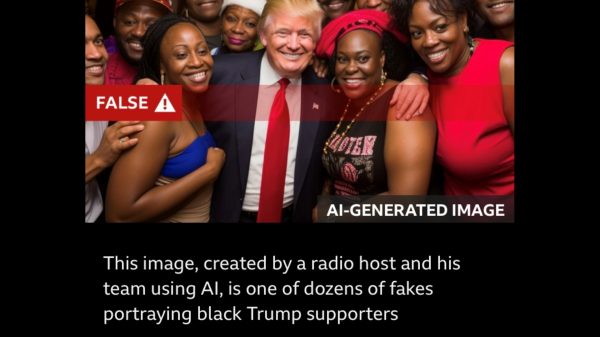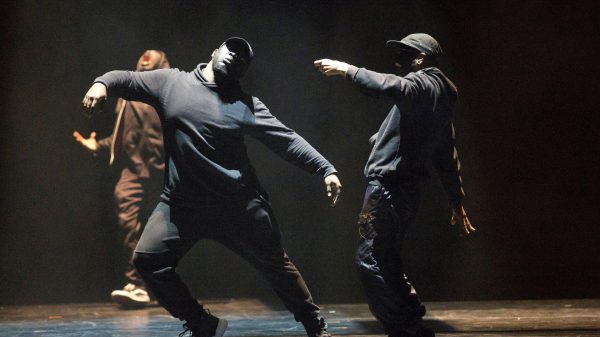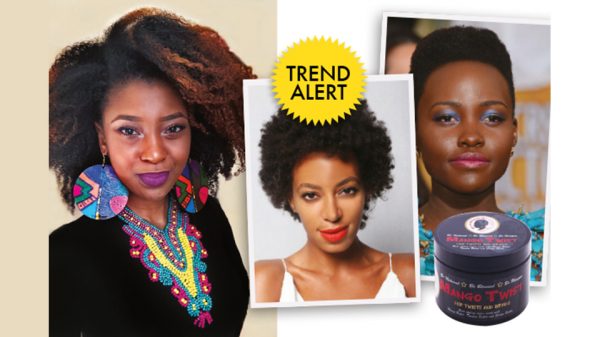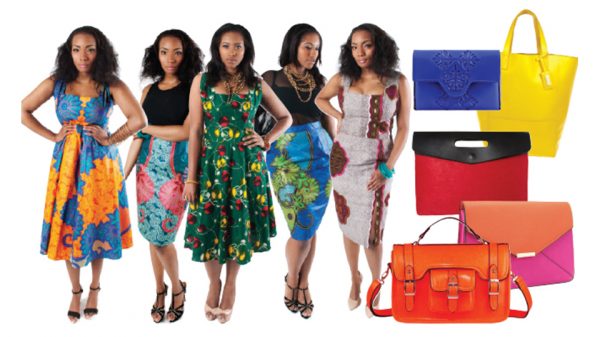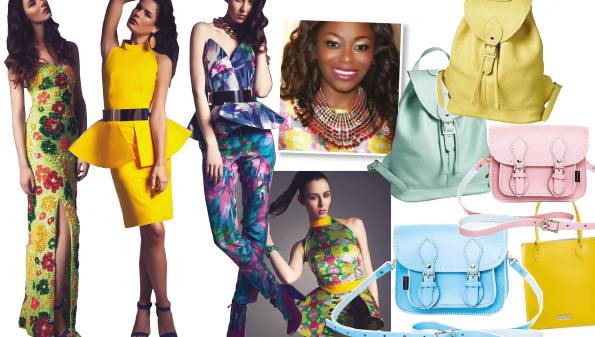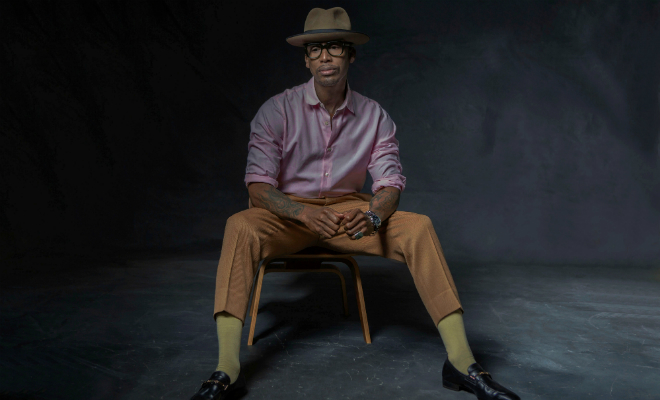R&B/soul star Raphael Saadiq tells Nicole Vassell about his most personal album to date
There are some artists who have such an established presence in the music industry that you can’t go too far without coming across a project they’ve had a hand in. For lovers of R&B, your music catalogue has undoubtedly been touched by the work of Raphael Saadiq – singer, songwriter, producer and a key collaborator for some of the greatest artists of all time. From his first wave of popularity in group Tony! Toni! Toné! in the Eighties and Nineties, to his career as a solo artist, to his work writing and producing on albums such as Solange’s A Seat At The Table and Mary J. Blige’s music for Oscar-nominated film Mudbound, California-born Saadiq is a true keeper of the culture.
And it’s clear he’s nowhere close to stopping having an impact and pushing musical boundaries. In 2019 he released his most personal work yet: Jimmy Lee, an album named after his late older brother, who died from a heroin overdose. Addiction is a theme that carries strongly throughout the album, as well as a commentary on peer pressure and a general feeling of anger and frustration in the zeitgeist. He tells Pride about why now is the right time in his career to explore such personal pain and some of the best things he’s learned through his work…
Congratulations on your most recent album release: Jimmy Lee. Named after your late brother, and with themes of addiction running through it, it’s truly a special album, and it’s your first since 2011. Why is now the time to release such a personal album?
Raphael Saadiq: I’ve been working a lot on production with a lot of other artists, and time kind of slipped away without me even noticing. But I got into a space where I thought about my brother and members in my family who’d struggled with addiction, and friends, and industry people. When you make records, the type of records that I’ve been making, you get a chance to go back and look at times in your life that you’ve never talked about. Once I noticed that I was going down that path… I processed it, and I realised it was something I should speak to. I’ve touched on it a couple of times in my career, but I guess it’s always been like patterning at me a little bit, to have the conversation. Jimmy Lee just brought it to fruition.
For someone who has been an artist for such a long time, do you ever get stuck for inspiration? Or is it a constant process – are you filtering your experiences in a way that you could use them for inspiration?
I can’t say that I ever get stuck for inspiration – it’s almost too much inspiration. I have to figure out where I want to take it.
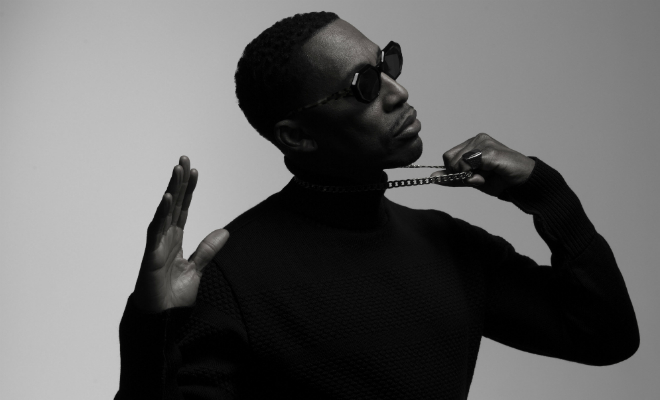
On Jimmy Lee, there’s a theme of addiction in tribute to your brother; on the song ‘Something Keeps Calling’ you put yourself in the perspective of the addict, rather than an onlooker on the outside. Was there anything in particular that you had to do in order to get yourself in the inside mindset?
I don’t think I had to put myself in any position… I think you go through things in life, and they may be sitting dormant until you touch on them. The information is always there, and the experiences, the stories are always there. It just matters how you approach it.
There’s a lot of glorification of drugs in a lot of music nowadays, and the party-hard culture is incredibly popular. What’s your opinion on that?
The party culture is a… [pause] real one in the world. People party, people get into different drugs. It was partly why I made this record. You sort of think a party drug is a little safer than the drug that my brother was addicted to, which was heroin. Everybody is made to think that a pill is a ‘safe’ option, but it’s all drugs. Everything’s a drug – even Xanax, that’s a drug. It’s more like talking about the awareness of what a drug is and what it does. It doesn’t matter the name it has; every drug, you have to be careful because – I don’t want to sound super cliché and say that gateway drugs lead to [harder] drug… but what matters is the type of personality you have. If you have an addictive personality, you can go to the doctor for knee surgery and come back on pills. A party drug, a drug from the orthodontist – it’s all drugs, and you have to be careful. No matter what it is, it could happen to anybody.
As well as releasing your own music, you’ve also worked in TV, composing for highly-rated shows such as Insecure and Luke Cage. What does a visual project have to have in order to gain your interest?
I really like shows with a lot of edge to them. I’ve worked on shows that haven’t had any edge – but now, Insecure, Marvel projects, there’s lots of American TV with edge to them now. I like mystery, great storytelling, something that’s shot very well, and where you can use music in experimental ways.
Throughout your long music career, you’ve been able to collaborate with people you grew up watching, like Stevie Wonder and Prince, as well as people who’ve grown up and known you, like Solange and Miguel. Is it different working with either category?
The difference between working with Prince and Stevie and Solange and Miguel – everybody… It’s always pretty unique. With Stevie Wonder, he might trying to figure it out at the same time I’m trying to figure something out. And with artists like Miguel, who’s very creative and always trying to get ahead of himself – it’s kinda cool to be a part of that. You can always learn from people. Where they’re at, and where you’re at will also be different – and it’s not an industry you really retire from. I was talking to Lionel Richie one day, and he said that people say he should retire; he goes: ‘Retire to what?’ Music is the best thing you could ever do; the freest form is music. With Solange, it’s the same thing – she’s always challenging herself and characters that want to challenge themselves are who keeps me going. That’s still something people want to do – challenge themselves to a greater height or to fail. That’s sort of where I’m at with everything now.
In a previous interview, you spoke about how in Solange’s When I Get Home, which you didn’t work with her on, she was writing more for performance. How do you write? Does it switch between each project?
It switches between each project, but every project is visual to me. Every project I’ve ever worked on is a visual project for me. I never put a lot of visual to it, but even so I feel like if the music is good enough, the people will be able to see it for themselves. It should give them that visual feeling no matter what. Jimmy Lee was more of a visual of his life, and my life, and my parents’ life… my sisters, and where I grew up. It’s storytelling about how addiction happens, how drug addiction has an effect on everybody around, not just the person who’s actually using.
This is an album that is saying something; it has a clear message. Do you see it as something of an artist’s responsibility to reflect the world and politics in their art?
I can’t really say that I feel it’s an artist’s responsibility – not every artist needs to do that. Every individual is different; maybe the way you are in your life, in your household, with your family, there might be something that you want to get off your chest. I don’t feel like anybody should feel responsible to do what I did, or what Marvin Gaye did when he made ‘What’s Goin’ On’. It’s not a check-off box, it just has to be right for you.
Jimmy Lee is available to buy and stream now.

